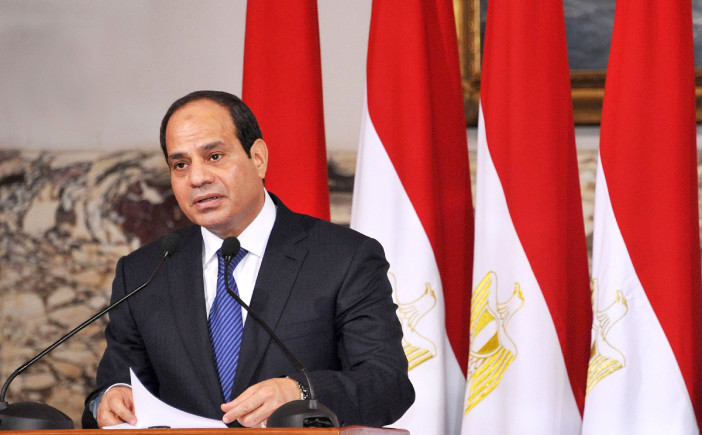An Egyptian court on Sunday ruled as unconstitutional a clause in the election law that draws voting districts, a verdict that is almost certain to delay parliamentary elections scheduled to start later this month.
President Abdel-Fattah el-Sissi said in a statement that he has ordered the government to adopt the “necessary legislative amendments” within a month to comply with the Supreme Constitutional Court’s ruling.
Another court is likely to rule later this month on whether the election should be delayed, but a date for the new vote would be decided by the Supreme Electoral Commission, which went into an emergency meeting on Sunday following the verdict.
Egypt has not had an elected legislature since 2012, when the Supreme Constitutional Court ruled that the lower chamber was not constitutionally elected. Supporters of then-President Mohammed Morsi besieged the court ahead of a hearing in which it was expected to issue a similar ruling against the upper chamber, preventing the judges from reaching their chambers.
The forthcoming election is the third and final step in a road map announced by el-Sissi when he ousted Morsi in July 2013 amid massive protests against the leader’s year long rule.
The first two steps were the adoption of a new constitution by referendum in 2014 and a presidential election that was comfortably won later that year by el-Sissi, who has ruled by decree since coming to office in June.
Morsi’s Muslim Brotherhood swept the first free parliamentary elections after the 2011 uprising that toppled longtime autocrat Hosni Mubarak. The group is now officially considered a terrorist organization, and thousands of its members, including most of its top leaders, are in jail.
Britain, the top foreign investor in Egypt, called for free and constitutional elections to take place as soon as possible to complete the 2013 road map.
“An effective and representative parliament is integral to the democratic transition on which Egypt’s stability and success depend,” Minister for the Middle East Tobias Ellwood said in a statement. SAPA






 WhatsApp us
WhatsApp us 


1 comment
the muslim brotherhood squandered the fruits of many months of struggle to oust the dictator system of decades only to make an opening for the military to regain power through the "front door"
together with other minorities they formed a government which was sectarian and rode roughshod over the rights of other minorities like the christians and shia
people were murdered, places of worship were destroyed and morsi and the mb looked the other way because mostly it was their supporters and affiliates who were the perpetrators
egypts decades old struggle for justice has been put on the backburner for the umpteenth time, as too other north-african states,
what are they doing wrong from an islamic perspective?
perhaps they should look at other models which has been succesful
but which models have been consistently been shura/ democracy oriented with the ability to satisfy the majority of its citizens and also retain its islamic nature?